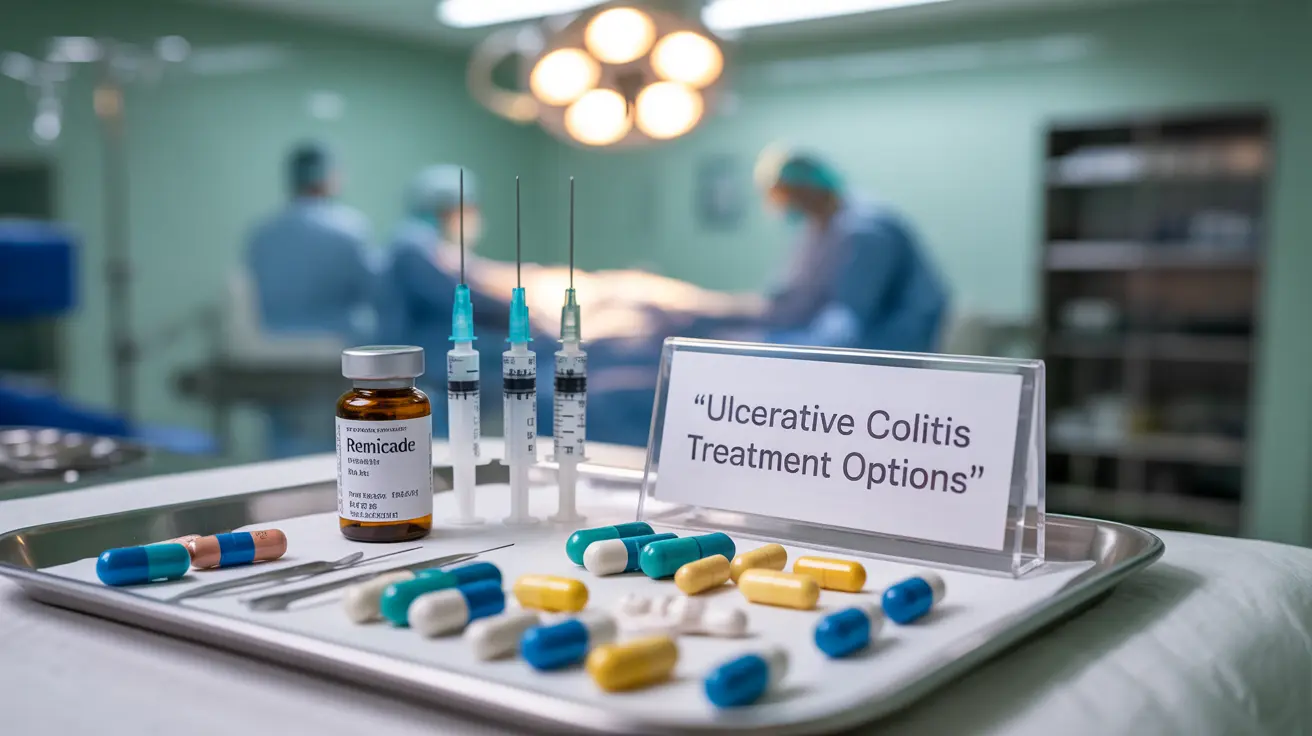Living with moderate ulcerative colitis (UC) presents unique challenges that require a well-planned approach to treatment and lifestyle management. Understanding your options and working closely with healthcare providers can help you effectively control symptoms and maintain a better quality of life.
This comprehensive guide explores the various treatment strategies, lifestyle modifications, and monitoring approaches that can help you take control of moderate UC and prevent complications.
Medication Options for Moderate UC
Treatment for moderate UC typically involves a combination of medications designed to reduce inflammation and control symptoms. The most commonly prescribed options include:
- Aminosalicylates (5-ASAs)
- Corticosteroids for short-term flare management
- Immunomodulators
- Biologics for cases not responding to conventional therapy
Your healthcare provider will work with you to find the most effective medication combination based on your specific symptoms and disease progression.
Dietary Management and Nutrition
Diet plays a crucial role in managing moderate UC symptoms and maintaining overall health. While there's no single diet that works for everyone, certain dietary approaches can help:
- Identifying and avoiding trigger foods
- Maintaining proper hydration
- Ensuring adequate nutrient intake
- Following a low-residue diet during flares
- Incorporating anti-inflammatory foods
Working with a registered dietitian who specializes in inflammatory bowel disease can help develop a personalized nutrition plan.
Lifestyle Modifications for Symptom Control
Making strategic lifestyle changes can significantly impact your UC management:
- Stress reduction techniques
- Regular, moderate exercise
- Adequate sleep and rest
- Smoking cessation
- Maintaining a symptom diary
These modifications, combined with medical treatment, can help reduce flare frequency and severity.
Monitoring Disease Progression
Regular monitoring is essential for effective UC management. Your healthcare team will track your condition through:
- Regular blood tests
- Stool samples
- Colonoscopy or flexible sigmoidoscopy
- Imaging studies when needed
- Symptom assessment and scoring
Understanding Surgical Options
While surgery isn't the first-line treatment for moderate UC, it may become necessary if:
- Medical therapy fails to control symptoms
- Complications develop
- There's a high risk of cancer
- Quality of life is significantly impacted
Understanding surgical options early can help you make informed decisions if they become necessary.
Frequently Asked Questions
What are the most common medication options for treating moderate ulcerative colitis?
The most common medications for moderate UC include 5-aminosalicylates (5-ASAs), corticosteroids for flare management, immunomodulators like azathioprine or 6-MP, and biologics such as TNF inhibitors. Treatment plans are typically tailored to individual patient needs and response.
How can diet and nutrition help manage symptoms of moderate ulcerative colitis?
Diet and nutrition can help manage UC symptoms by identifying and avoiding trigger foods, ensuring proper hydration, maintaining balanced nutrition, and following a low-residue diet during flares. Some patients benefit from specific dietary approaches like the Mediterranean diet or low-FODMAP diet under professional guidance.
What lifestyle changes can reduce flare-ups and improve quality of life in moderate ulcerative colitis?
Key lifestyle changes include stress management techniques, regular moderate exercise, maintaining good sleep habits, quitting smoking, and keeping a symptom diary. These modifications, combined with medical treatment, can help reduce flare frequency and improve overall quality of life.
When is surgery considered for ulcerative colitis, and what are the signs that medical therapy isn't enough?
Surgery is considered when medical therapy fails to control symptoms, complications develop, there's a high risk of cancer, or quality of life is severely impacted. Signs that medical therapy may be insufficient include persistent severe symptoms despite optimal medication, frequent hospitalizations, or development of complications.
How do doctors monitor moderate ulcerative colitis and adjust treatment plans over time?
Doctors monitor UC through regular blood tests, stool samples, endoscopic procedures, and symptom assessment. Treatment plans are adjusted based on disease activity, response to current therapy, and the presence of any complications or side effects. Regular follow-up appointments help ensure optimal disease management.




